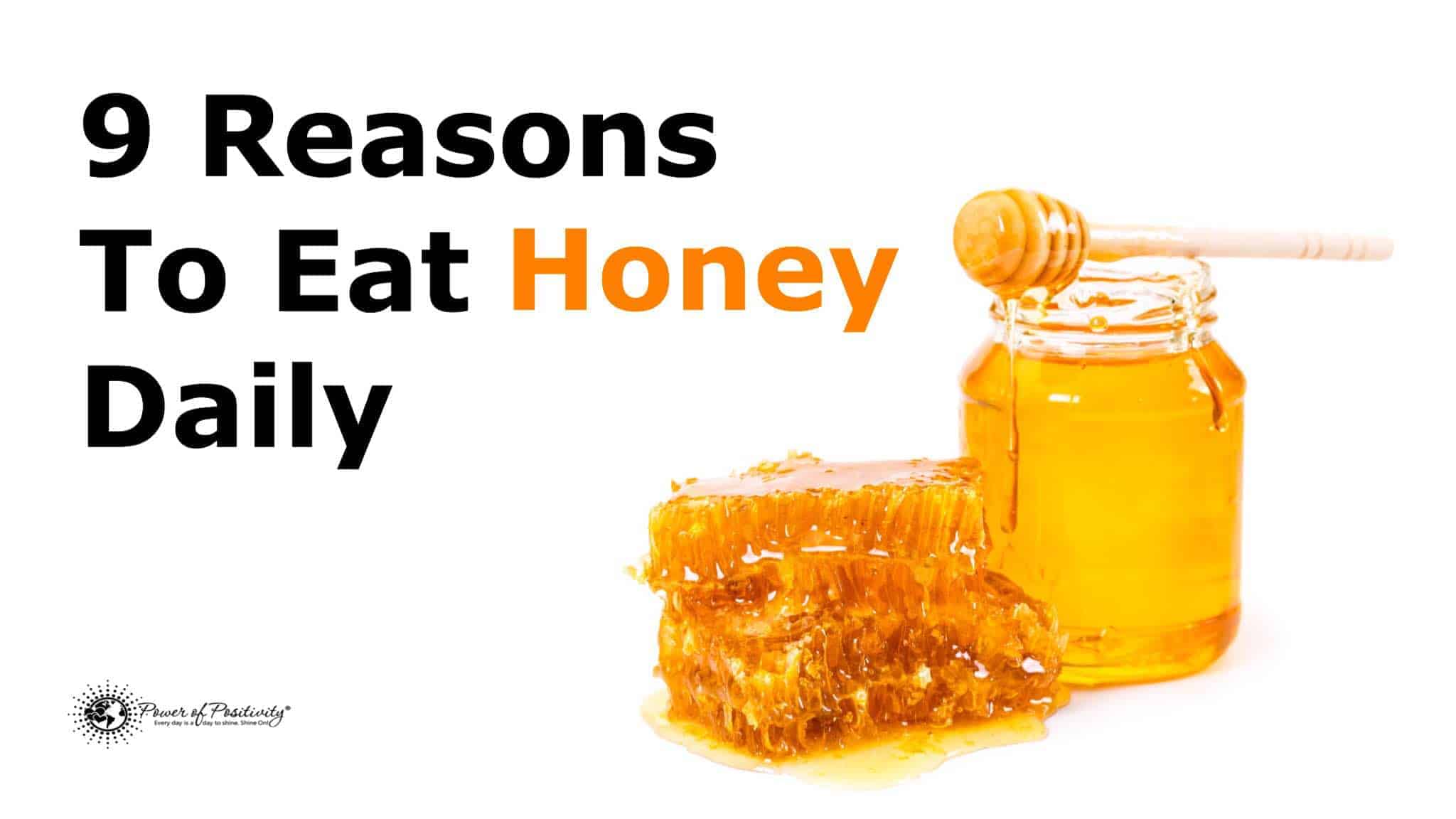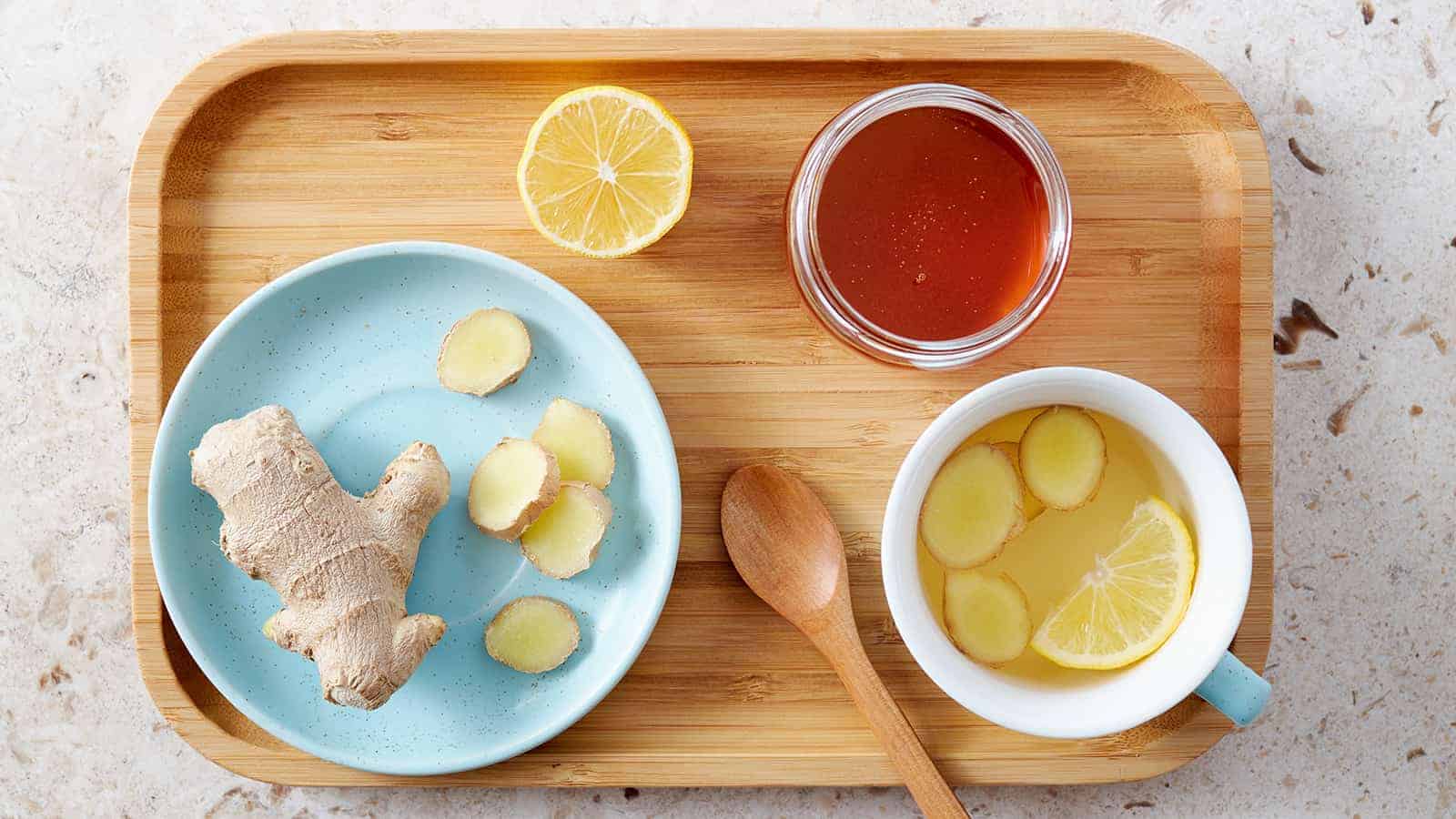Is there anything quite like a steaming, fragrant cup of honey ginger tea? It’s been a relaxing health tonic for thousands of years for good reason, especially with a drizzle of honey. You can quickly learn how to make honey ginger tea to soothe coughing and other ailments.
Ginger’s Early Origins
When you think of ginger, your mind may go back to the delightfully sweet and peppery cookies your grandmother made during the winter holidays. Ginger lends a touch of warm spiciness to many foods and beverages. Chances are you have a sealed piece of fresh ginger root in the refrigerator and some dried powdered ginger in your spice drawer at this moment.
Have you ever considered the history of this beloved plant? Since it’s the root of the ginger plant used, botanists classify ginger as a culinary spice. It is native to China and Eastern Asia, and it’s a close cousin of turmeric, another pungent spice.
Food historians and anthropologists have found evidence that suggests that ginger was first discovered in its native China around 3,000 BCE. It was one of the many spices and herbs used in Ancient Chinese and Indian medicine. Ginger was consumed whole, powdered, dried, and in countless topical ointments.
The Significance of Ginger in the Western Hemisphere
 The popularity of this esteemed spice stayed in the Far East until the beginning of the Common Era. When the Romans became the world’s leading power in the first century CE, they discovered ginger by trading with Chinese and Indian merchants. Toward the beginning of the second century, ginger began building a reputation for culinary and medicinal uses throughout the Roman Empire.
The popularity of this esteemed spice stayed in the Far East until the beginning of the Common Era. When the Romans became the world’s leading power in the first century CE, they discovered ginger by trading with Chinese and Indian merchants. Toward the beginning of the second century, ginger began building a reputation for culinary and medicinal uses throughout the Roman Empire.
During the Middle Ages, ginger was a well-established spice used for digestive problems and circulation issues. When the Europeans invaded North and South America, they introduced ginger to natives in tropical zones, where it started to flourish.
The earliest American settlers already had an insatiable taste for ginger because of memories of their homelands in Germany, England, and France. Ginger was an indispensable ingredient in both savory and sweet recipes. The settlers recreated popular European treats like ginger beer, ginger ale, and gingerbread, and they knew how to brew honey ginger tea to soothe coughing.
For generations, they used ginger for their upset stomach, and they taught their children how to make honey ginger tea to soothe coughing. It was a staple in everyone’s spice cabinet as well as in the local apothecary’s shop. After the War for Independence, this hardy plant root followed settlers during America’s era of expansion.
Ginger in Modern Times
Although some wild ginger cultivars are native to North America and have been consumed for centuries by natives and European settlers, modern research has discovered that some of its compounds may be toxic. However, the research confirms that wild ginger is still as safe as a topical treatment. Most of the ginger you see in the grocery stores were imported from the East, while two percent is produced in Hawaii.
You already know the earthy, sweet spice that ginger adds to dishes worldwide, especially Asian-inspired ones. If you’ve never had it steeped to make a tasty tea, then you are in for a treat. It didn’t take long for the Ancient Chinese and other Far East countries to create ginger tea for religious significance and medicinal purposes, like making honey ginger tea to soothe coughing.
Why Should You Drink Ginger Tea?
Not only is honey ginger tea comforting and delicious, but research backs up many of it believed medicinal qualities. Perhaps you’ve heard of past generations drinking a little ginger tea for a cold, often with a touch of honey. It’s easy to learn how to make honey ginger tea to soothe coughing and other health benefits.
Is that nagging cough getting you down? When your ancestors had a cold or flu, they often turned to Mother Nature’s pharmacy and learned how to make honey ginger tea to soothe coughing. Here are some of the benefits of ginger tea that has the attention of the medical science community.
1. May Help Prevent Colds
Did you know that ginger is a significant source of Vitamin C and beneficial minerals like magnesium? While nothing can guarantee you won’t catch the virus that causes the common cold, ginger tea provides powerful antioxidants to make your body less susceptible to it.
2. Soothe and Repress Coughing
Ginger tea has noted anti-inflammatory properties that may reduce inflammation from asthma, coughing, and sore throat. When you give it a boost with the healing properties of raw honey, it can help relax your airways, so you aren’t hacking as much. Learning how to make honey ginger tea to soothe coughing can help you and your family any time you need.
 3. Break up Mucus
3. Break up Mucus
You know how miserable it is when you have a mucus buildup due to a cold, flu, or allergies. The warm steam from a fresh cup of ginger tea can help loosen the excess mucus and make it easier to expel. Plus, the tea soothes and relaxes your throat when it’s sore from coughing.
4. Relieve Nausea
Have you ever felt waves of nausea because of motion sickness or another condition? Why not brew a hot cup of ginger tea? It can comfort your stomach and soothe the lining of your esophagus after vomiting. Drink some before the onset of your symptoms, and it may calm your stomach, so you don’t vomit at all.
5. Improve Your Circulation
Ancient civilizations who venerated ginger often used it to improve their circulation. Even though they didn’t know the chemistry behind it, modern science has discovered the vitamins and amino acids can benefit your circulation. Some studies suggest that it may prevent plaque buildup in the arteries that can cause cardiovascular disease and stroke.
6. Reduce Stress
If you are like most Americans, you probably have more stress than is necessary. Did you know that chronic stress can lead to high blood pressure, coronary diseases, stroke, cancer, and even premature death? When you learn how to make honey ginger tea to soothe coughing, the warmth and aroma can also calm your nerves and effectively reduce your stress levels.
7. Reduce Inflammation
Inflammation is responsible for most diseases and disorders, like arthritis. Do you want a natural remedy to reduce inflammation in your painful and stiff joints? The anti-inflammatory properties in ginger tea can minimize the swelling so your joints can have less pain and more range of motion.
Brew Your Way to Better Health
Do you want to learn how to make honey ginger tea to soothe coughing and other ailments? If you know how to boil water, then you won’t have any problem. The basic ingredients are fresh ginger and honey, but you can use other ingredients to suit your taste.
Honey Ginger Tea
Try this soothing and delicious brew.
What You Need:
•4 ounces organic fresh ginger root, sliced into 1- inch pieces
•4 cups of filtered water
•Organic Raw honey, to taste
How To:
•In a small saucepan over medium-high heat, add the water and bring it to a boil.
•Add the ginger slices to the water and stir a few times. Reduce the heat to low and simmer for five minutes. If you want a stronger brew, allow the water to simmer 2-3 minutes more.
•Use a small strainer to strain the tea into a teapot carefully. For each cup of tea, pour enough tea to fill the cup a little more than ¾ of the way to the brim. Drizzle in about a teaspoon of honey, or to taste. Stir the tea well and enjoy it hot.
•If you prefer iced tea, allow the simmered tea to cool to room temperature. Strain it into a pitcher and chill it in the refrigerator at least four hours or overnight. Fill glasses with crushed ice, and add the tea with a splash of honey and stir well.
Ginger Tea Precautions
Before you learn how to make honey ginger tea to soothe coughing and other conditions, keep some precautions in mind. While people have drunk ginger tea without a problem for thousands of years, you may be sensitive to ginger. If you drink too much ginger tea, it can cause indigestion and diarrhea.
Just because something is natural doesn’t mean it can’t have side effects. The compounds in ginger can reduce your blood pressure and thin your blood, so you may not want to consume it if you take blood-thinning medications. Talk to your primary healthcare advisor about all the medications you take before consuming ginger or taking ginger supplements.
Ginger tea has been a traditional home remedy for generations of women with pregnancy morning sickness. Some research suggests that it can minimize nausea connected with chemotherapy. Since the research is preliminary and the remedy is controversial, err on the side of caution and seek medical advice first.
 Final Thoughts on Consuming This Honey Ginger Tea
Final Thoughts on Consuming This Honey Ginger Tea
Once you learn how to make honey ginger tea to soothe coughing and other ailments, it may become your favorite tea variety. Along with honey, feel free to add other yummy additions like lemon or a complementary herb. Calm your cough and discover other possible health benefits one delicious cup at a time.

















